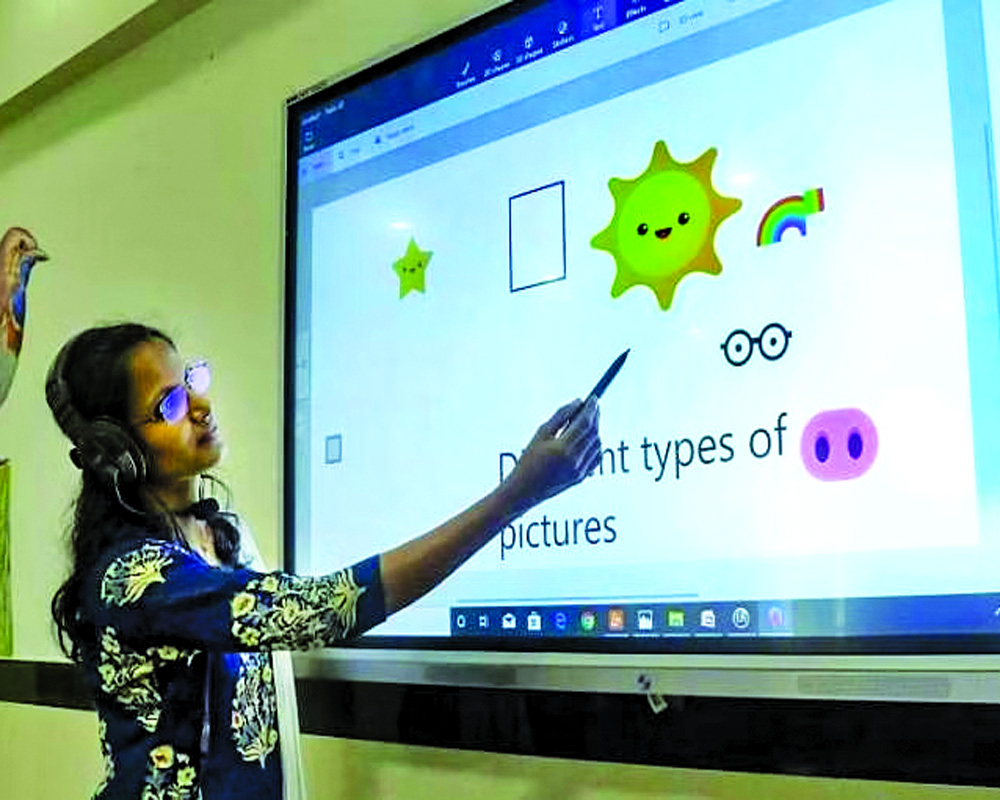The ability to use technology, communication tools and networks along with proper netiquette is extremely essential
For a person or an organisation accessing their work digitally, it becomes important to find, evaluate and effectively use the pool of online information. Also, one must have the ability and intent to create and share content digitally.
The covid-19 pandemic has taught the people of India, especially the elderly how to adapt to new technologies to facilitate their tasks. It has also provided them with an effective means against loneliness and social isolation caused by confinement. Today everyone is surrounded by the digital world in some way or other be it paying online bills, booking movie tickets, shopping, ordering food from their favourite restaurants, or even signing contracts in just one click but at the same time it becomes important to talk about the highly rated term Digital Literacy for individuals who are still disconnected or are very little related to the digital world.
At its core, digital literacy is the ability to use digital technology to access, understand and use information effectively and efficiently. According to the American Library Association, digital literacy is defined as the ability to use information and communication to find, evaluate, create and communicate information, requiring both cognitive and technical skills. Professionals such as an educator, architects, doctors, warehouse operators, contractors managing construction sites and many more require digital communication at some point in time for searching or extracting information from across varied digital channels. Moreover, the biggest advantage of digital content being accessible on personal devices often makes an individual retain the information for a long time and enhances the knowledge. The best part about going digital is that a user does not require the mandatory skills of coding to be successful but what forms the utmost importance is digital literacy.
It becomes necessary for an individual, especially the nation builders of the future- the children, to develop digital literacy skills for these skills are going to help them in creating their future as many businesses today are setting up their own online applications which require submission of resumes through email. To develop digital literacy skills, a child should start using technology in everyday life for simple tasks such as reading a blog and articles, writing an email and sending it to its near and dear ones or joining an online community that will help in connecting with others and many more.
Parents too can help develop digital literacy skills at home by monitoring the use of technology in terms of time being spent online, websites being accessed, and interactions done by them over social media. When such skills are inculcated at an appropriate age will the child know the limitations of technology and understand the dangers and precautions that the use of this digital technology requires. Though the biggest disadvantage associated with the use of technology is that it will make a person addicted, socially isolated, obese or even anxious at the same time improve academic performance, and creativity due to interaction with different people, enhanced communication skills followed by multitasking and many more outweigh the risks.
Today digital consumption has become a part of our daily lives. As we look to the future, it’s clear that digital literacy will continue to play increasingly important roles in everyone’s life. Proper knowledge and effective usage of online practices will help in increasing safety. Digital literacy is the building block of the digital India vision.. In a world where AI is deployed at scale, understanding how to adopt AI systems and knowing where to apply Machine Learning capabilities will be a major component of digital literacy.
(The author is a teacher at a reputed school in Delhi)

























